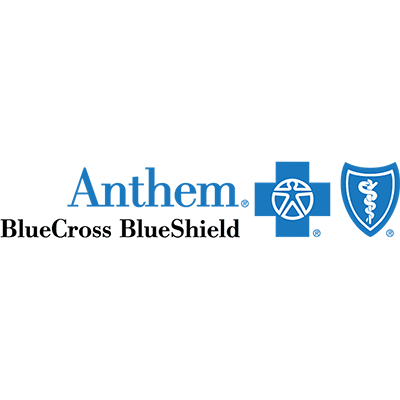Medical detox helps in the sense that your body is cleansed of addictive substances in the short term, and it can relieve acute symptoms associated with withdrawal.
It does not address root cause(s) of addiction, nor what you’ll have to do to maintain sobriety. It sets the stage for you to receive therapeutic measures to help you achieve your long-term goals.
We treat patients age 16 and up.
Most detoxes last five days. However, the duration of medical detoxification varies from person to person. Factors like co-occurring disorders, severity of withdrawal symptoms, length of your addiction, recency of drug use, and substance(s) you were using can all impact duration of medical detox at our Nashville addiction rehab clinic.
That’s because substance abuse affects your:
After prolonged use, your body and brain become used to and even dependent on those substances. They alter the way your brain functions, affecting your:
When you cut the supply of alcohol or drugs, your brain and body are thrown into disarray because of chemical and neurological imbalances. In many situations of detox, urgent and quick medical assistance is needed to ensure a person’s well-being. That’s why quitting cold turkey—suddenly and on your own—is not the right choice.
Medical detox puts you in the care of healthcare and psychological professionals at our addiction treatment clinic in Nashville, so they can monitor your progress, help keep you comfortable, and give you medical help if you need it.
Some drugs have more significant withdrawal symptoms than others. When you use psychoactive drugs, the chemistry of your brain changes to accommodate them. Eventually, your brain becomes used to that level of neurotransmitters, hormones, and chemicals. Drug abuse can also cause a flood of dopamine or serotonin, which helps regulate your moods and emotions. This is what causes the high associated with drug abuse. When these drugs wear off, you experience a crash, as your brain attempts to balance itself.
The more often you use drugs and the higher your doses, the longer it can take for your brain to achieve that natural balance. Eventually, you will be dependent on the drugs. If you stop using them, withdrawal sets in.
Multiple factors can impact the intensity of your withdrawal symptoms:
1. The type of drug you’ve been taking regularly – If you used multiple substances, that would also play a big role in your withdrawal symptoms and the medical approach for detox.
2. Your level of dependence – This can be influenced by:
The longer and more frequently you used drugs or alcohol, the harder it might be to quit. If you have been taking a lot of drugs for a long time, your level of dependence is probably high. And the fact that drug tolerance goes down over time means you need higher doses to have the same effects. All this points to a longer detox period, since your body is in need of the substance to function.
Detox helps you reach stability after quitting drugs or alcohol, but it is only the first step towards recovery. It manages the physical symptoms of drug withdrawal and helps you get a handle on cravings. It doesn’t address the root causes of your addiction.
You will need a substance abuse treatment program to help you with that. Addiction treatment should include:
Medications; nutrition planning; exercise programs; and additional holistic treatment, like massage therapy, yoga, chiropractic care, and acupuncture, can also aid in the healing process. The programs can help you address the physiological and behavioral parts of addiction. You’ll learn how to make positive lifestyle changes and take the time to instill healthy habits for a sustained recovery.
DO I NEED A DETOX PROGRAM?
If you need alcohol for your body to feel normal, then you likely need help. Getting through detox isn’t just a matter of willpower, and stopping “cold turkey” without at least medical help is never recommended. In some cases, withdrawal can put your life at risk. Even when it’s not as serious, it’s still a big challenge.
An addiction rehab program gives you support to guide you through the withdrawal. That often includes medicine to help ease symptoms as well as care for medical and mental health conditions.
Your symptoms may last a week or more, typically hitting their worst within 24-72 hours. You’re more likely to stick with a detox program when you have lots of help.
It is possible to detox alone; however, it is not always ideal. Complications may arise at any time based on the substance used and the person’s existing physical and mental health. Also, intense cravings and other significant discomforts may arise during the withdrawal process, weakening the resolve to quit and potentially contributing to the risk of relapse.
The process of withdrawal can result in a wide array of symptoms that, depending on the drug and the individual, may include:
Medical detox may be better able to manage and treat symptoms such as these as they present – making the process as safe and comfortable as possible.
Initial evaluation explores common psychiatric symptoms, especially as they relate to problems in daily life.
Many patients harbor a variety of emotions that become evident during the initial evaluation. This experience may be liberating for people unaccustomed to seeing a physician known for addressing root causes of behavioral issues.
Self-discovery fosters personal satisfaction and happiness. Nutrition and exercise may be used to mitigate psychiatric illness, including substance use disorders and mood disorders.
Medication is prescribed in combination with psychotherapy and professional counseling.
Our addiction treatment doctors in Nashville are committed to appropriate use of medication as an adjunct treatment, rather than a bedrock of recovery.
Dual diagnosis is the simultaneous existence of a mental disorder and substance use disorder. 30% of people with a psychiatric disorder have a coexisting substance use disorder.
Expert physicians draw on a thorough understanding of each patient and tailor treatment specific to a person’s needs. Biological, psychological and social influences must be perceived in the proper context to plan effective treatment. Our Nashville concierge doctors approach psychiatric conditions, especially substance use disorders, with knowledge acquired from years of clinical experience and excellent training.
Most patients are surprised by the discovery of depression or anxiety as subconscious causes of substance use.
Recognizing problematic substance use or psychiatric illness is the first step in recovery.









Nashville Addiction Recovery is a concierge acute medical detox and crisis intervention practice headquartered in Nashville, Tennessee.
Copyright © 2022 Nashville Addiction Recovery | All Rights Reserved | Staffing Policy | Notice of Privacy Practices | HIPAA Policy